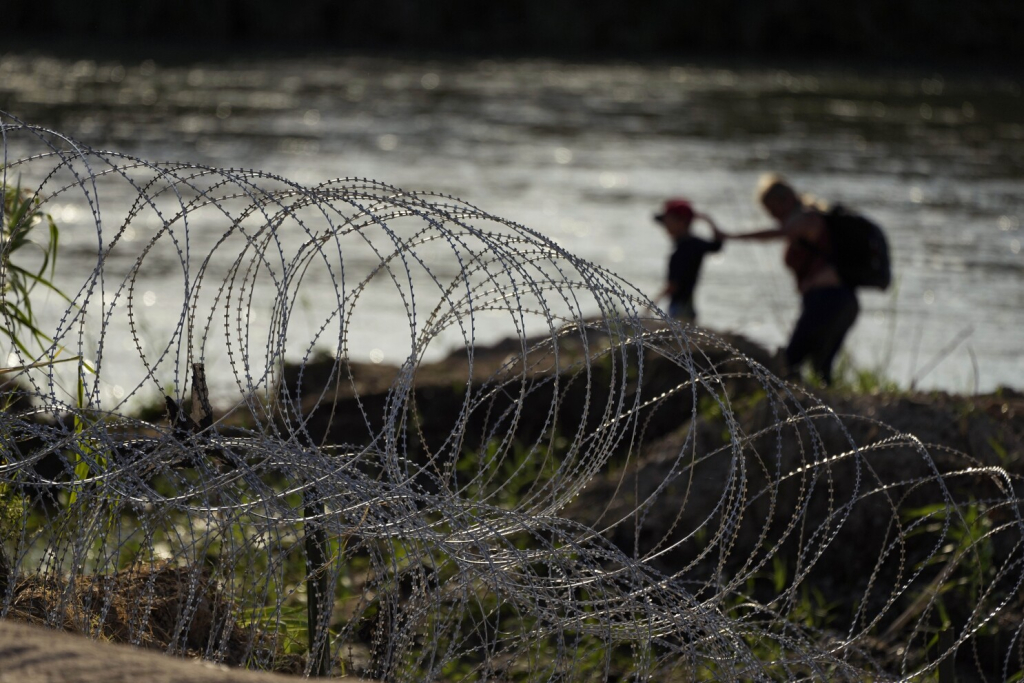
WASHINGTON (AP) — Arrests for crossing the U.S. border illegally fell slightly in March, authorities said Friday, bucking a usual spring increase amid increased immigration enforcement in Mexico.
The Border Patrol made 137,480 arrests of people entering from Mexico, down 2.3% from 140,638 arrests in February, the first time since 2017 that arrests fell in March from the previous month. Crossings typically rise as temperatures turn warmer.
Mexico detained migrants 240,000 times in the first two months of the year, more than triple from the same period of 2023, sending many deeper south into the country to discourage them from coming to the United States. While Mexico hasn’t released figures for March, U.S. officials have said Mexican enforcement is largely responsible for recent declines.
“Encounters at our southern border are lower right now, but we remain prepared for changes, continually managing operations to respond to ever-shifting transnational criminal activities and migration patterns,” said Troy Miller, acting commissioner of U.S. Customs and Border Protection.
The March arrest tally is one of the lowest of Joe Biden’s presidency after a record high of nearly 250,000 in December. While conditions quickly change, the decline is welcome news for the White House at a time when immigration has become a top voter concern in an election year. Biden said this month that he is still considering executive action to suspend asylum at the border if crossings hit a certain threshold.
Tucson, Arizona, was again the busiest of the Border Patrol’s nine sectors on the Mexican border in March, a position it has held since summer, followed by San Diego and El Paso, Texas. Texas’ Rio Grande Valley, the busiest corridor for illegal crossings for much of the last decade, is fifth busiest, signaling how quickly routes are changing.
The arrest tally excludes new and expanded paths to enter the country legally under presidential powers, known as parole, which allow people to stay temporarily and apply for work permits.
U.S. authorities granted entry to 44,000 people at land crossings with Mexico in March through an online appointment system, CBP One. More than 547,000 have been allowed in the country through CBP One since it was introduced in January, led by Venezuelans, Haitians and Mexicans.
More than 400,000 people from Cuba, Haiti, Nicaragua and Venezuela have been allowed to enter the U.S. through March after applying online with a financial sponsor and arriving at an airport, paying their way.




